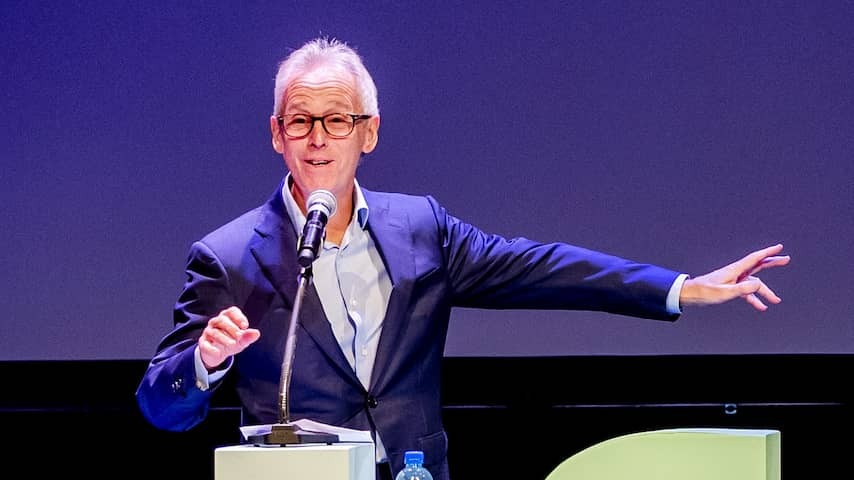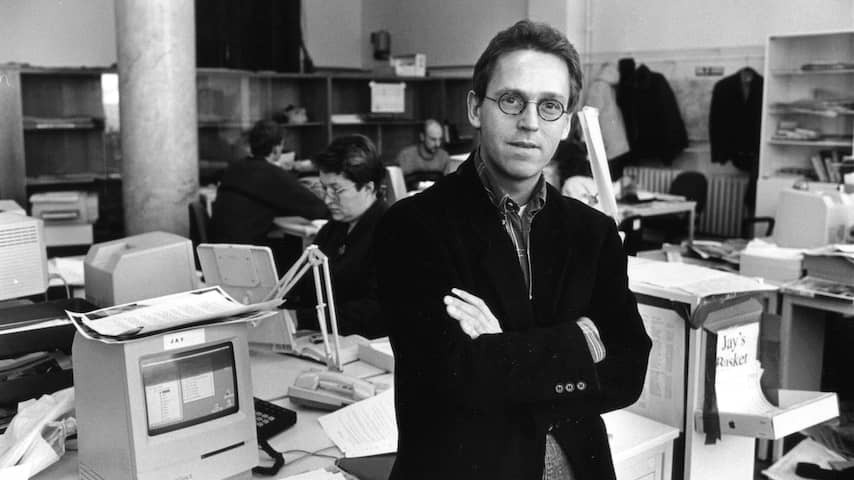
The Thursday-passed Derk Sauer came to many places and learned a lot. As a result, the journalist and media entrepreneur came into the sights of the authorities several times, such as the Kremlin. Sauer had to bend to that pressure, but he always continued to fight for freedom of the press.
“I know things you would like to know, but I am a journalist”, according to Sauer, this was his standard answer when the AIVD was on the line. He worked in Russia for years and the Dutch intelligence service was eager to talk to him about the country.
According to Sauer, the AIVD sought rapprochement “three, four times”. In an interview with NRC in 2023, the journalist said that it would have been “stupid and dangerous” to go to sea with the AIVD.
In his youth, Sauer had also sold no once, but then against the British intelligence service. In the early 1970s, during the civil war in Northern Ireland, he was fishing for information about his work in the country. “In return I could get money. They didn’t mention an amount, but it was big,” Sauer said.
The interest of the intelligence services is indicative of the influence he had as a journalist. He had that influence from the beginning of his career to the fall of it.
Sauer not impressed by BVD file
The list of titles where Sauer, born in 1952, worked or was involved is long: VPRO, De Groene Amsterdammer, Nieuwe Revu, Het Parool, NRC Handelsblad and (the Russian versions of) among others Playboy, FHM, Esquire and Men’s Health. And that for someone who was not trained as a journalist.
He learned that profession by doing, Sauer told NRC. In 1970, at the age of nineteen, he took the plunge and left for Northern Ireland for coverage. A leap into the deep end, because there was a violent conflict going on at that time. This brought Sauer into the picture at both broadcaster VPRO and Nieuwe Revu, where he was editor-in-chief between 1982 and 1989.
All that time, Sauer was watched by the Domestic Security Service (BVD), the predecessor of the AIVD. He came into the picture as a student because of activist (school) newspapers and participation in demonstrations. And during his work as a journalist, Sauer apparently remained interesting enough for the BVD.
When he read a summary of his personal file years later, Sauer said he was surprised. “There is really nothing in it that makes you think: wow, wow Sauer. And half of the information is not correct.”

Net slowly but surely closed in Russia
In 1989 Sauer, his wife and their then one-year-old son Tom moved to Moscow. In Russia, he managed to build a media empire in a relatively short time. In addition to the magazines mentioned, The Moscow Times and business newspaper Vedomosti were also part of it. The sale of his company Independent Media in 2005 brought him 142 million euros.
Five years later, Sauer acquired NRC through an investment company. But he soon came into conflict with the editors. Sauer was accused of interfering with the content as owner. “It does remind you of media owners from Italy and Australia,” Paul Disco, former director/publisher of De Groene Amsterdammer, said at the time about the matter. Eventually Sauer was fired.
At that time Sauer was also active at the Russian media company RBK, but that party did not last long either. “RBK became more or less the last resort for Russian journalists”, he said in an interview with Het Parool. RBK managed to maintain a place in the ever-shrinking Russian media landscape for a long time. But under pressure from Vladimir Putin’s regime, Sauer was still directed to the background in 2015.

‘True fighter for freedom of the press’
However, it would take until after the Russian invasion of Ukraine before the ground became too hot for him. In 2022 he left Moscow. Once in the Netherlands, which until then had mainly been a holiday country, Sauer found accommodation with The Moscow Times at DPG Media. Together in a building with Het Parool, for which he continued to write columns until his death.
He also set up a meeting place for Russian journalists in exile in the Netherlands. The editors-in-chief of Het Parool, Jildou van der Bijl and Michiel Couzy, described Sauer earlier on Thursday as a “true fighter for freedom of the press”.
“He combined the enthusiasm of an idealist with the sharpness of an autonomous thinker,” the editors-in-chief say. Not surprising for someone who had been dismissed by the BVD as an “egocentric person who likes to exaggerate in order to seek more publicity for his stories in his magazine”.
Sauer was seriously injured in Greece last month in an accident on his sailboat. The journalist was then treated in hospitals in Athens and Amsterdam. Sauer died on Thursday at the age of 72 in his holiday home in Zeeland.